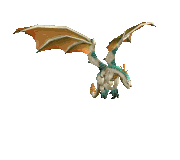Post by QueenFoxy on Feb 17, 2019 10:47:36 GMT -6
The Saola was only discovered in 1992 and since then has only been photographed three times in the wild. They are known as the 'Asian Unicorns'.

Amazing Facts About the Saola
Human knowledge of this creature only extends back two decades to May 1992 when the Vietnamese Ministry of Forestry and the WWF came across the skull of an unidentifiable two horned mammal in the home of a hunter.
The identification of the Saola was the first large mammal discovery in more than 50 years and an extraordinary addition to the zoological catalog of the century.
The appearance of a saola is akin to an antelope, though cattle are the closest genetic cousins. This unusual combination made the scientific classification so difficult that a new biological tribe was created.
Both male and female Saola, have two parallel long, straight, pointed horns that have been measured to reach up to an amazing 20 inches (50 cm), twice the size of their head. Their silky, short fur is a dark chestnut brown color apart from the distinctive beautiful white markings above their eyes, like an eyebrow, beside the nose and along the jawline. A lighter, cream coloring is also found just above the hooves and on the chest.
The tail is short, colored by three stripes that give the appearance of a zebra crossing, brown at the top, cream in the middle and the fluffy end is black.
They are elusive and have only been photographed in the wild three times, which has earned the Saola the title of the ‘Asian Unicorn’. As a result, very little is known about these mysterious creatures.
Information from local people suggests that they generally travel alone, but they have also been sighted traveling in small groups. They are thought to be active early in the morning and will avoid the heat of the midday sun.
There have been few saolas in captivity. Most information has come from a saola named Robichaud who was observed in captivity in 1996 for 18 days until she died from unknown causes.
From what we learned from Robichard, saolas are thought to be tame amongst humans but very distressed by dogs.
These rare beauties are Critically Endangered. Loss of habitat is the main threat to their survival. It is unknown exactly how many exist.

Amazing Facts About the Saola
The Saola, pronounced sow-la, meaning ‘spindle horns’ in Vietnamese, is found in only one place in the world: the Annamite Mountains forests on the border between Vietnam and Laos.
Human knowledge of this creature only extends back two decades to May 1992 when the Vietnamese Ministry of Forestry and the WWF came across the skull of an unidentifiable two horned mammal in the home of a hunter.
The identification of the Saola was the first large mammal discovery in more than 50 years and an extraordinary addition to the zoological catalog of the century.
The appearance of a saola is akin to an antelope, though cattle are the closest genetic cousins. This unusual combination made the scientific classification so difficult that a new biological tribe was created.
Both male and female Saola, have two parallel long, straight, pointed horns that have been measured to reach up to an amazing 20 inches (50 cm), twice the size of their head. Their silky, short fur is a dark chestnut brown color apart from the distinctive beautiful white markings above their eyes, like an eyebrow, beside the nose and along the jawline. A lighter, cream coloring is also found just above the hooves and on the chest.
The tail is short, colored by three stripes that give the appearance of a zebra crossing, brown at the top, cream in the middle and the fluffy end is black.
They are elusive and have only been photographed in the wild three times, which has earned the Saola the title of the ‘Asian Unicorn’. As a result, very little is known about these mysterious creatures.
Information from local people suggests that they generally travel alone, but they have also been sighted traveling in small groups. They are thought to be active early in the morning and will avoid the heat of the midday sun.
There have been few saolas in captivity. Most information has come from a saola named Robichaud who was observed in captivity in 1996 for 18 days until she died from unknown causes.
From what we learned from Robichard, saolas are thought to be tame amongst humans but very distressed by dogs.
These rare beauties are Critically Endangered. Loss of habitat is the main threat to their survival. It is unknown exactly how many exist.







 Everyone have a great weekend!!!!
Everyone have a great weekend!!!!